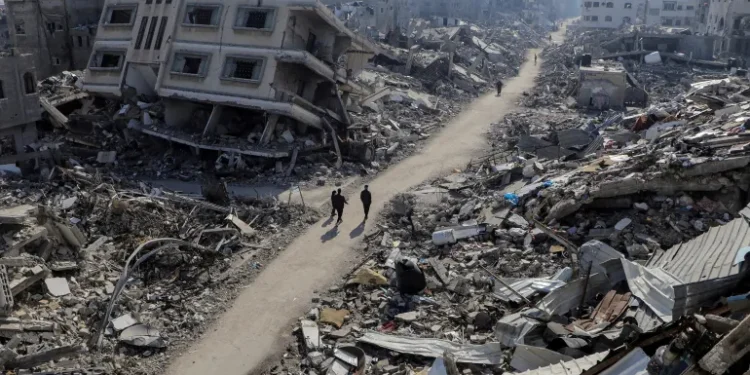Amidst the ongoing conflict in Gaza and the surrounding region, Western allies find themselves walking a precarious tightrope between diplomatic allegiance and the moral imperative to prevent genocide. As Israel’s actions come under increasing scrutiny, the question of complicity in war crimes looms large over nations that continue to provide support in the form of arms and funding. The specter of legal repercussions, including potential sanctions from the International Court of Justice (ICJ), hangs heavy over these alliances.
Recent events, including the targeting of humanitarian convoys, the destruction of medical facilities, and the loss of countless civilian lives, have intensified accusations of war crimes and even genocide against Israel. Despite these alarming developments, many Western nations persist in their support for Israel, raising serious ethical and legal concerns.
The United Nations Special Rapporteur on human rights in the Palestinian Territory, Francesca Albanese, recently warned Israel’s Western allies of their potential complicity in genocide. In a damning report, Albanese highlighted clear indications of Israel’s violations of the UN Genocide Convention and emphasized that complicity in genocide is expressly prohibited under international law, imposing obligations on third-party states.
Nicaragua’s bold move to take Germany to the ICJ for violating international law by continuing arms shipments to Israel serves as a stark reminder of the legal jeopardy faced by complicit nations. Despite mounting evidence of Israel’s transgressions, major arms suppliers like the US, the UK, and Australia have refrained from suspending weapons sales, even as the death toll in Gaza continues to rise.
The leaked revelation that UK government lawyers have advised that Israel breached international humanitarian law underscores the moral dilemma faced by Western powers. If Israel’s violations are officially acknowledged, the UK government would be compelled to cease intelligence sharing with Israel—a potentially seismic shift in diplomatic relations.
As the international community grapples with these ethical quandaries, the imperative to address the humanitarian crisis in Gaza becomes increasingly urgent. The ICJ’s directive for Israel to facilitate the flow of humanitarian aid into Gaza underscores the critical need for immediate action. Yet, Israel’s obstruction of aid efforts and its baseless accusations against organizations like the UN’s agency for Palestinian refugees, UNRWA, only exacerbate the suffering of Gaza’s population.
By withholding funding for UNRWA and impeding humanitarian aid, Western allies risk complicity in war crimes and violations of the Genocide Convention. The refusal to hold Israel accountable for its actions, coupled with the provision of weapons that enable further devastation, tarnishes the moral standing of nations that prioritize political expediency over human rights.
In the face of mounting evidence of Israel’s atrocities, the international community must heed the call for justice and accountability. Failure to do so not only perpetuates the cycle of violence and suffering in Gaza but also undermines the very principles of justice and human rights that nations claim to uphold. As the specter of genocide looms over the region, Western allies must reckon with the consequences of their complicity and take decisive action to prevent further bloodshed.
















